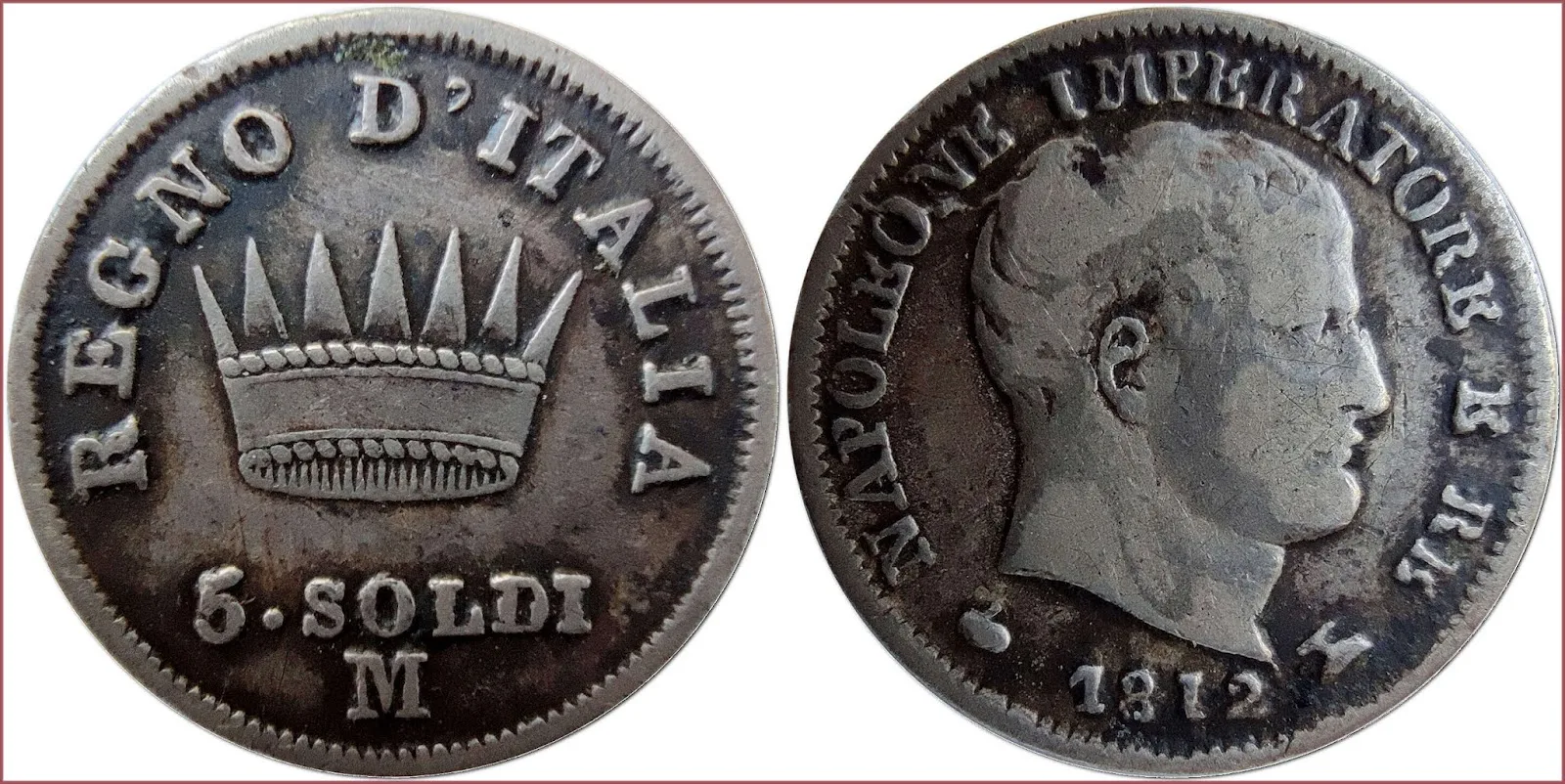SOLDO: COIN OF ITALY
5 soldi, 1812: Kingdom of Italy (Napoleonic)
Ruler: Napoleon I Bonaparte — King of Italy.
REGNO D'ITALIA - 5 SOLDI - M: Kingdom of Italy - 5 soldi - M (Milan).
Seven-pointed crown from Flag of the Napoleonic Kingdom of Italy.
NAPOLEONE IMPERATORE E RE: Napoleon, emperor and king.
Portrait of Napoleon. Mintzmeister's marks around the date.
Mint: Milan (Italy) — sign "M".
Mintage: 1.719.019.
- Silver (0.900): 15 mm - 1.21 g
- Reference price: 19$
COIN SOLDO — WHERE & WHEN (coins catalog: by names & emitents)
- KINGDOM OF ITALY, Italian States (1807-1814): soldo = 5 centesimo = 1/20 lira
- ITALIAN STATES (12th-19th centuries): City of Ancona, Patriarchate of Aquileia, Castiglione Delle Stiviere, County of Cocconato, Republic of Corsica, County of Gorizia, Kingdom of Lombardy-Venetia, Republic of Lucca, Duchy of Mantua, Duchy of Massa-Carrara, Masserano, Duchy of Milan, Duchy of Modena, Montferrat, Papal States, Kingdom of Sardinia, Duchy of Savoy, Prince-bishopric of Trento, Tuscany, Republic of Venice...
- SWISS CANTONS (18th-19th centuries): Lordship of Haldenstein, Canton of Ticino…
- REPUBLIC OF RAGUSA (17th-18th centuries): soldo = 1/360 tallero
- PORTUGUESE INDIA (16th century): soldo = 4 reais
The name of the soldo coin (plural: soldi) undoubtedly comes from the name of the extremely common ancient Roman gold coin — solidus. Known etymologically related names of coins: sol, solid, sou, shilling...
By the way, the name of the soldo coin served as the basis for the word "soldier" to denote a mercenary who was bought for a small coin and whose life is valued just as negligibly.











